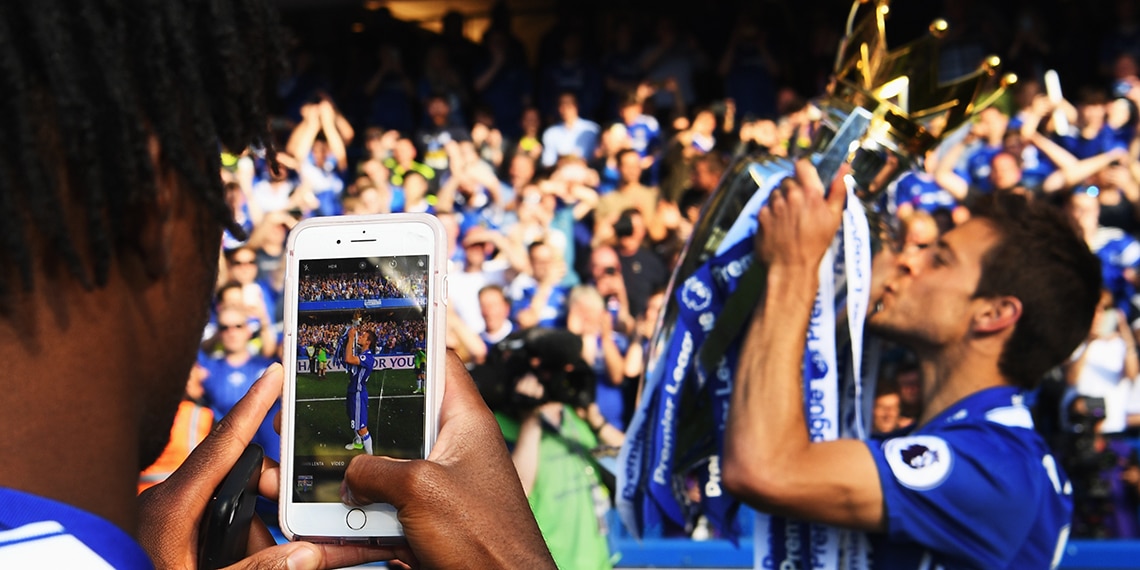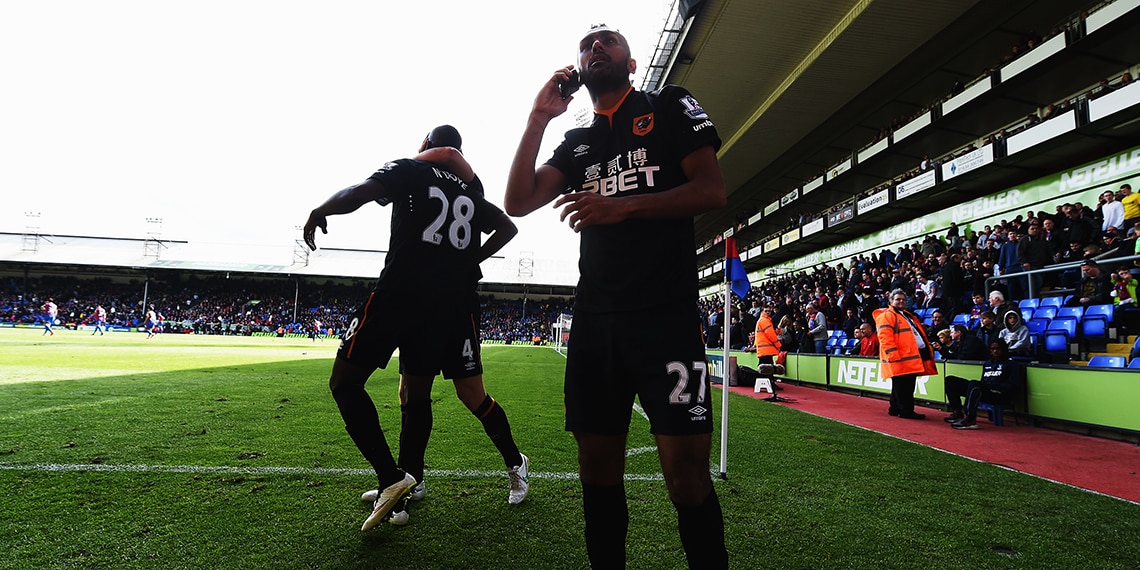
In this week's Premier Skills English Podcast, Jack and Rich talk about some problems people often have when talking on the telephone. These problems can be language based (what to say) or problems with technology (bad line or reception). Rich and Jack have some practice phone conversations that should help you with your own phone conversations in English. They also introduce lots of words and phrases that are connected to phone conversations. We also have an exciting new phone-in where we call one of our listeners and test their knowledge of football vocabulary and the team they support. Our first contestant is Philemon from Ghana! As always, we also have a new football phrase for you to guess. Enjoy!
How much did you understand?
In the podcast, Rich and Jack used lots of words and phrases that we use to talk on the phone. Some of them might be new for you. You can see two examples here:
No, no. I'm not Rich. I think you've got the wrong number.
Sorry, I'm in the middle of something. Can I call you back in a minute?
There were a few more tricky words and phrases in the podcast. Do you know what they all mean? Try the activity below, then, listen to the podcast again to hear how we used the words. This can really help your understanding.
In this activity, have a look at some words and phrases about speaking on the phone and try to match them to the correct definition.

Chelsea players using their phones after lifting the Premier League trophy.
On the phone - Starting a conversation
One of the most difficult things to do on the telephone is starting a conversation. There are different ways of starting a conversation on the telephone. These depend on two important things:
- Are you talking to someone you know?
- Is it a formal or informal conversation?
Jack and Rich know each other well, so the conversations they had in the podcast were informal. Take a look at these examples:
Hi Rich, it's Jack. How are you?
Hi Rich, Jack here. How you doing?
If it is a more formal conversation with someone you know, you might use slightly different structures. The next example could be used if you need to ring work to tell them that you are sick:
Hello. This is Richard Smith. I'm calling to say that I won't be able to come to work today because I'm sick.
If you don't know somebody, and you are calling somebody back, you might say something slightly differently again:
Hello. My name is Richard Smith. You called me this morning and I'm returning your call.

I'm a bit busy. Can you call back later?
You may sometimes need to speak to a specific person when you are calling a company. There are a number of polite ways to do this:
Is it possible to speak to Mrs. Smith?
May I speak to Mrs. Smith?
Could you put me through to Mrs. Smith please?
And, sometimes, especially when you are calling about a service, you don't need to use your name, just give the reason why you are calling:
Hello. I'm calling about the advertisement for the job I saw in the newspaper last night.
Hello. I was wondering if there were any tickets left for the match on Saturday.
In this activity, take a look at some different conversations and decide which phrases are most appropriate for each situation.
In this activity, think about each situation and decide if the conversation is informal or formal and if it's between people that know each other or not. Then, choose the correct word to complete each sentence.
Top tips for speaking on the phone
Jack and Rich had a few problems with their telephone conversations during the podcast. Some of these were language problems and some of these were technical problems such as a bad line and a lot of background noise. Here are our top tips for speaking on the telephone:
- Ask people to repeat things. If you haven't understood use phrases such as: Can you say that again, please?, Sorry, I didn't quite catch that, or Can you repeat that last part one more time, please?
- Confirm you have understood by repeating things back to the speaker. This is a good tactic to check your understanding and it's also very natural. Say things such as: So, you mean..., in other words, So, what you are saying is...
- Ask people to speak more slowly. People, especially native speakers, can sometimes speak very quickly on the phone. You need to get them to slow down! Use phrases such as: Can you speak a little slower, please? English is not my first language so would you mind slowing down a bit?
- Watch out for background noise. Before you telephone somebody, think about where you are. If you are in a public place look for a quieter place to speak.
- Think about how you start the conversation. Before you make a call, think about how to start the conversation and think about what you expect the other person to say. If you can guess what the answers might be, it makes things a lot easier!

Mobile phones being used to light up Old Trafford.
A telephone conversation
In the podcast, Rich and Jack asked you to think of a telephone conversation, in English, that you might have in the future. We want to do lots of different dialogues in the comments section. Start your dialogue by writing ring, ring at the beginning of your message. To write the next line of the dialogue hit the reply button in the comments section and reply to that person. Then start a new dialogue with a new comment. Don't forget to use some of the words and phrases you've learned in this lesson. Here are some possible topics for your dialogues:
- Phone a friend and arrange to meet to do something together. Decide upon the time and place in your conversation. You might want to meet at a cafe / in the park / in the town centre / at the cinema.
- Call a business such as a local gym or restaurant to find out the opening times or to book a table.
- Ring a football club and ask about tickets for a match in the future.
Write your dialogue in the comments section below.
What do you think?
In this week’s podcast, Jack and Rich spoke about talking on the telephone.
Do you ever talk on the phone in English? When? Is it more difficult than speaking face to face? Why?
Let's write some telephone dialogues! Start your dialogue by writing ring, ring and reply to other people's dialogues by pressing the reply button. Look at the task above for more information.
Remember to write your guess at this week's football phrase and answer the questions above in the comments section below.
If you want us to correct your English, just write 'correct me' at the beginning of your comment.






Log in or register to post comments